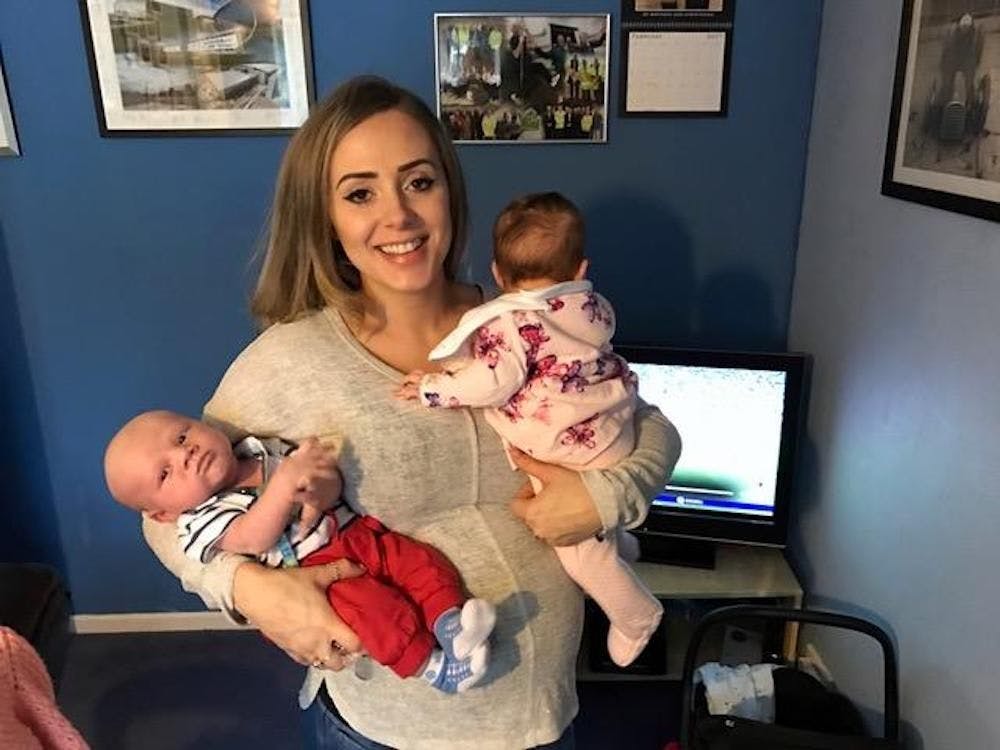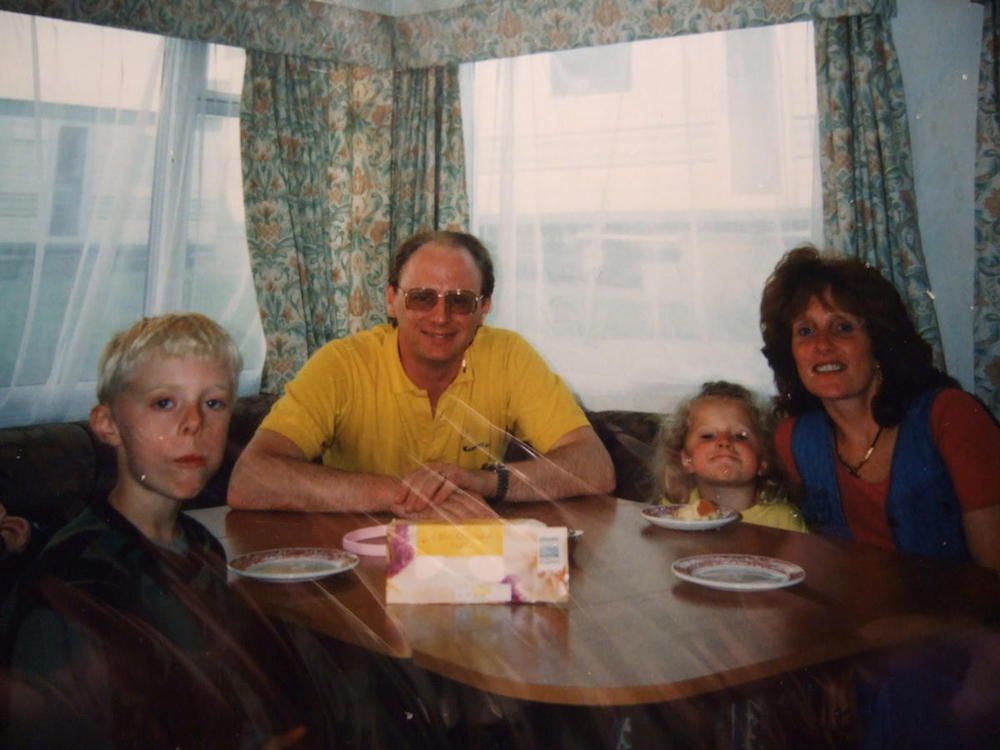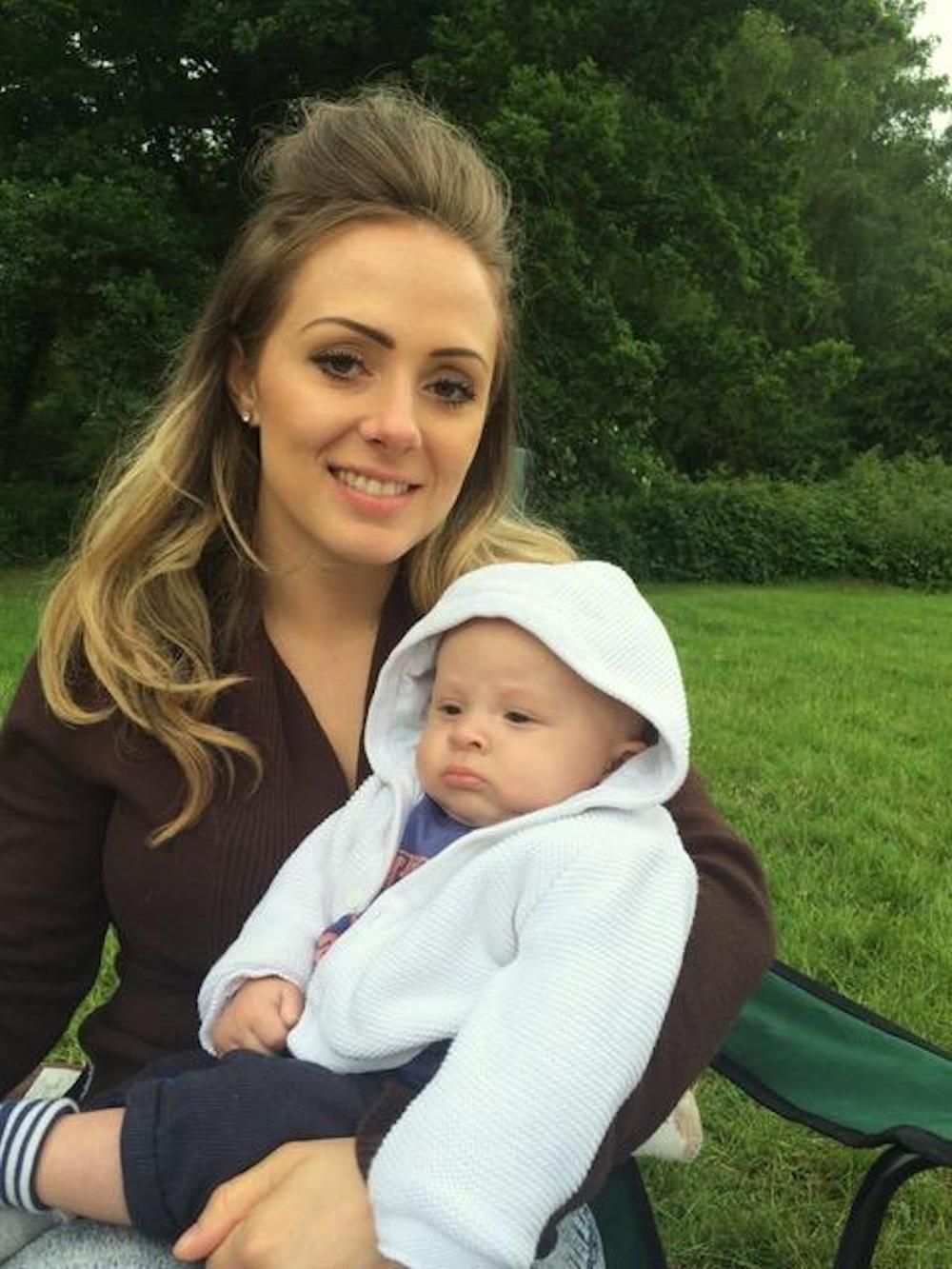
Growing up, Rebecca Fussey never felt like she fitted in. She experienced extreme anxiety in every social interaction, and went on to use alcohol as a coping mechanism for her depression. But once she received a diagnosis, Rebecca understood herself and her behaviour much more, and has worked hard to get her life back on track
I am a 26-year-old woman, with two beautiful children, and an amazing support network. My physical health is good, and I have a roof over my head – a “picture perfect” life, right? This could not be further from the truth.
From a young age, I’d obsess about everything – worried that if I didn’t do something, it would have terrible consequences. I believe this set the pattern for the mental health battles I was to face in the future.
All through primary school I was a bit of a loner. I kept my head down and was determined to do my best. I’d get teased for being the “boffin”, but I don’t remember it having a negative effect on me. However, as secondary school approached, I wondered what it would be like to be the “popular one”, and decided to try to fit in more.
For the next few years I made lots of new friends. But I did get picked on by boys for being “ugly”, and I would blush in front of everyone. What started with me being scared to blush in class rapidly crept into every aspect of my life. I was increasingly self-conscious, and scared to be asked a question in class, as I knew I would be overwhelmed with embarrassment.

Rebecca as a child with her family
Looking back, I’ve always been a “people pleaser”. I’ve changed my persona to fit into different friendship groups. If one of my close friends wasn’t at school, I’d feel anxious and lost, as if I relied on other people to bounce off.
So when faced with work experience I felt overwhelmed. Someone there asked me a question and I froze. I knew the answer, but was cut off from my thoughts by sheer dread.
This started to happen often, and I would make myself scarce at lunchtime to avoid interaction. I felt so anxious that I just stopped eating.
In the final year of secondary school I met my first proper boyfriend. He was a singer, gorgeous and charming. But it wasn’t long before another side of him emerged – a compulsive liar, manipulative, and controlling.
When I found out he’d cheated on me, we had a huge argument. Next thing I knew, he was holding a knife, threatening to hurt himself if I left him. I reached for his arm to lower it, and he turned the knife on me. Luckily, he dropped it and started crying, but in that moment I knew it was over.
I ended the relationship, but I was still madly in love with him. I would cry as soon as I woke up, and felt like I was in mourning.
I was low for so long that my mum encouraged me to go to the doctor. I was put on medication, which I am still on, to try to lift my mood.
At college I became increasingly anxious around people, and turned to alcohol to escape from what I was feeling. I missed a lot of classes purely because I couldn’t bear to face the human interaction. I ended up failing all my exams and dropping out after the first year.

Rebecca and her son
Between the ages of 16 and 21, I was very much a drifter. I moved to Spain, intent on “finding myself”, but it dawned on me that no matter where I was, I still had the same feelings.
Being around people made me feel on edge and paranoid. I felt I was boring, and was too scared to interact with people properly if I was sober. The only time I’d feel happy or normal was with a drink inside me.
I ended up spending 90% of my time out there drinking. I worked in a nightclub and I’d drink so much I’d black out. But at the time, I had such low confidence that I didn’t even care. After getting fired from two clubs, I decided it was time to come home.
My mental state was worsening. I was drinking more and more, to try to erase negative memories and give me some temporary happiness.
I looked at other people – from worse backgrounds, or who had traumatic life events – and felt guilty for feeling depressed. I didn’t understand what was going on in my head.
In December 2013, a couple of months after meeting the future father of my children, I attempted suicide, and was admitted to a private mental health clinic.
Most of my time in there was a haze. I was diagnosed with anxiety and depression, and attended a course of cognitive behavioural therapy. But they had me on such strong medication that I couldn’t feel anything, and assumed I was getting better.
The battle continued from as soon as I left the clinic in March 2014, until September last year, when I hit rock bottom. I was taken to the Bridge Centre, Basingstoke (an NHS recovery facility), where I was diagnosed with borderline personality disorder), social phobia, recurrent depressive disorder, and harmful use of alcohol.
They altered my medication, which helped me remain more stable. Finally there seemed a logical reason for the way I was feeling! The more I researched my diagnosis, the less alone I felt.
I never considered myself as an alcoholic, because I believed that meant someone who drinks all day, every day. I knew I had an unhealthy relationship with alcohol, but I thought this was just a generational thing.
However, as time went on, I noticed my drinking was affecting relationships. I realised I needed to change, needed help, and to surround myself with the right people.

Rebecca at a fundraising event for Mind
There were many false starts, but one day was the last straw and I took myself to Alcoholics Anonymous. Since going to my first meeting on 1 April, apart from one lapse, I have remained sober. Being able to sit in a room knowing there is no judgement there has been unexpectedly therapeutic and inspiring.
I thought I’d dread the meetings each week, but no matter what frame of mind I’m in when I go, I came out feeling recharged and full of determination to continue this part of my journey to wellness.
The other major factor in my recovery journey is the local wellbeing centre, run by Mind’s Andover branch. It offers therapies in the form of writing, art, gardening, and mindfulness.
The activities have given me a sense of purpose and helped me reconnect with myself. I’ve also attended courses there about overcoming anxiety and building your confidence.
These lovely people did more for me in a week than the Priory did in all the time I spent there. It is such a laid back environment, and the staff have a non-judgemental approach, which immediately puts you at ease. They also offer days out, which usually I’d avoid like the plague, but there’s a sense of belonging and being with like-minded people which is a great comfort and builds your confidence.
Lastly, I don’t know where I’d be without my support network. My parents have continuously been there for me, and I have grown to know my true friends. Without their company or support I’d feel so lost.
I believe recovery from any type of mental issue is an on-going journey. But over time, the lows are less frequent, and the highs are core reminders of what we have to live for. For the rest of the time, we just have to learn to live in the in-between and know that all these bad feelings will pass – because we have made it this far.
Rebecca recognises that her experiences in childhood and as a young adult have affected her life – making it difficult for her to interact with others, and to feel confident in herself. She kept the world at bay and relied on alcohol to manage her mood – and so many people can fall into these unhealthy coping mechanisms. Yet, finding the right, healthy therapy, and having support can make a difference. For Rebecca, connecting with others who, without judgement, listened and shared their experiences, has been an instrumental step.

Join 100,000+ subscribers
Stay in the loop with everything Happiful
